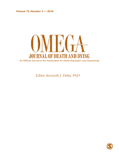
OMEGA-JOURNAL OF DEATH AND DYING
Scope & Guideline
Pioneering Research in Death Studies
Introduction
Aims and Scopes
- Interdisciplinary Research on Death and Dying:
The journal emphasizes research that crosses disciplinary boundaries, integrating perspectives from psychology, sociology, anthropology, medicine, and religious studies to provide a holistic understanding of death and dying. - Exploration of Grief and Bereavement:
A core focus of the journal is the study of grief processes, including complicated grief, disenfranchised grief, and the impact of grief on mental health, exploring both qualitative and quantitative methodologies. - Cultural and Societal Perspectives on Death:
The journal publishes research highlighting how cultural, social, and historical contexts shape perceptions and practices related to death, dying, and bereavement. - Impact of Psychological Factors on Death Anxiety:
Research on the psychological aspects of death, including death anxiety, coping mechanisms, and the effects of loss on mental health, is a significant area of focus. - Innovative Practices in End-of-Life Care:
The journal promotes studies on emerging practices in palliative and end-of-life care, including the role of healthcare professionals and alternative care models. - Policy and Ethical Considerations:
Research addressing ethical dilemmas, policy implications, and the legal aspects of death and dying, including assisted dying and end-of-life decisions, is also central to the journal's aims.
Trending and Emerging
- Impact of COVID-19 on Grief and Mourning:
A significant increase in research examining how the COVID-19 pandemic has altered grief experiences, mourning practices, and bereavement support systems has emerged, highlighting the profound impact of global crises on death and dying. - Digital Grief and Virtual Memorialization:
There is a notable trend toward exploring how digital platforms and social media facilitate ongoing relationships with the deceased and impact grieving processes, reflecting changes in communication and memorialization practices. - Intersection of Grief with Mental Health:
Emerging studies are increasingly focusing on the connections between grief, mental health, and psychological well-being, including the effects of grief on anxiety, depression, and post-traumatic growth. - Cultural Competence in End-of-Life Care:
Research emphasizing the need for culturally sensitive practices in end-of-life care and bereavement support is gaining traction, addressing the diverse needs of different populations. - Narrative and Creative Approaches to Grief:
An increasing number of studies are utilizing narrative and creative methodologies to explore grief experiences, indicating a shift towards understanding grief as a complex, multifaceted process.
Declining or Waning
- Traditional Views on Grief Stages:
There appears to be a waning interest in traditional stage theories of grief, such as Kübler-Ross's model, as newer frameworks emphasizing complexity and individual variability gain prominence. - Purely Clinical Perspectives on Grief:
Research that focuses solely on clinical outcomes without considering social or cultural contexts is becoming less common, as there is a growing recognition of the importance of holistic approaches to grief. - Static Approaches to Death Education:
There has been a decline in research promoting static or one-size-fits-all death education models, with a shift toward more dynamic, culturally sensitive approaches. - Focus on Physical Processes of Dying:
Studies concentrating solely on the physiological aspects of dying without considering psychological, social, or emotional dimensions are receiving less attention. - Individualistic Perspectives on Bereavement:
Research that solely examines individual experiences of grief, without addressing community and relational dimensions, is becoming less prevalent, reflecting a shift toward more collective understandings of bereavement.
Similar Journals

McGill Journal of Law and Health
Bridging Legal Frameworks and Health Policies.Welcome to the McGill Journal of Law and Health, a distinguished publication that uniquely intersects the fields of law and health policy, published by McGill University, Faculty of Law. Operating from the vibrant city of Montreal, Canada, this journal serves as a vital forum for scholars, practitioners, and students who are passionate about exploring the intricate relationship between legal frameworks and health systems. With an ISSN of 1920-4825, the journal encapsulates a rigorous approach to examining pressing legal issues affecting public health and is committed to advancing knowledge and discussion within its scope. Ranked within the Q3 category in Law and Q4 in Health Policy for 2023, it is positioned to facilitate significant contributions to both academic and practical landscapes. It features an array of research articles, case studies, and policy analyses that are freely accessible, fostering an inclusive environment for knowledge-sharing. The McGill Journal of Law and Health is an essential resource for those aiming to engage with contemporary debates and findings at the intersection of law and health, offering insights that are crucial for informed decision-making and advocacy in this evolving field.
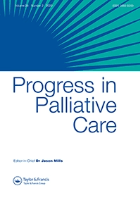
PROGRESS IN PALLIATIVE CARE
Transforming pain management through cutting-edge research.PROGRESS IN PALLIATIVE CARE, published by ROUTLEDGE JOURNALS, TAYLOR & FRANCIS LTD, is a leading academic journal dedicated to advancing the field of palliative care through high-quality research and innovative practices. With an ISSN of 0969-9260 and an E-ISSN of 1743-291X, this journal serves as a critical resource for healthcare professionals, researchers, and students seeking to enhance their understanding of pain management, symptom relief, and holistic care approaches for patients with life-limiting illnesses. Operating without an open access model, the journal is well-regarded in the academic community, holding a Q3 ranking in Medicine (miscellaneous) and a Q2 ranking in Nursing (miscellaneous) as of 2023. Its Scopus ranking places it at rank #51 out of 139 in General Nursing, reflecting its relevance and quality within the field. Covering the period from 2001 to 2024, it aims to foster interdisciplinary dialogue and share vital research findings to improve palliative care practices, ultimately enhancing patient care and outcomes.

Somatechnics
Innovating Insights into the Interplay of Flesh and MachineSomatechnics is a distinguished interdisciplinary journal, published by Edinburgh University Press, that explores the intricate interplay of the body and technology through a unique lens. Since its inception in 2011, this journal has carved a niche within the fields of Anatomy, Arts and Humanities, Human Factors and Ergonomics, and Sociology, significantly contributing to the academic discourse on how technological advancements shape and redefine human identity and experience. With a strong H-Index and a commendable impact factor, Somatechnics has achieved notable rankings across various categories, including a Q2 ranking in Anatomy and Sociology and Political Science, reflecting its broad influence and critical thought leadership. Researchers and practitioners are encouraged to explore the journal’s rich repository of peer-reviewed articles that challenge conventional perspectives, while also benefiting from valuable insights across varied disciplines. Despite its lack of open access, Somatechnics remains an essential resource for those looking to understand the complexities of human-technology interactions in contemporary society.
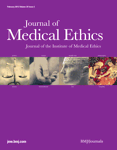
JOURNAL OF MEDICAL ETHICS
Pioneering Conversations on Medical MoralityJOURNAL OF MEDICAL ETHICS, published by the esteemed BMJ PUBLISHING GROUP, is a leading journal that has been pivotal in advancing the discourse on ethical issues in healthcare since its inception in 1975. This UK-based journal, with an ISSN of 0306-6800 and an E-ISSN of 1473-4257, is well-regarded for its high-quality, peer-reviewed articles that delve into the complex moral dimensions surrounding medical practices, health policies, and social sciences. With a commendable impact, JOURNAL OF MEDICAL ETHICS has achieved Q1 quartile rankings across multiple categories, including Arts and Humanities and Health Policy in 2023, reflecting its significant influence and relevance in the field—ranked #23 of 552 in Arts and Humanities (Miscellaneous) with a 95th percentile, and #26 in Health Policy with a 91st percentile. Researchers, professionals, and students alike can benefit from the journal's commitment to fostering a deeper understanding of ethical considerations vital to the medical community, although it currently does not offer open access options. The journal's comprehensive examination of issues, ethics, and legal aspects continues to make it an essential resource for those dedicated to shaping the ethical landscape of healthcare.
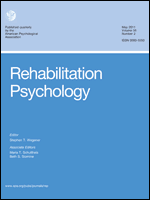
REHABILITATION PSYCHOLOGY
Innovating Rehabilitation Through ResearchRehabilitation Psychology, an esteemed journal published by the Educational Publishing Foundation - American Psychological Association, serves as a premier platform for high-quality research in the interdisciplinary fields of clinical psychology, rehabilitation, and physical therapy. With an impressive impact factor reflective of its rigorous publication standards, it maintains a Q1 ranking in Clinical Psychology and Rehabilitation, establishing itself as a vital resource for researchers and practitioners dedicated to enhancing mental health and recovery processes. Since its inception in 1982, Rehabilitation Psychology has continuously adapted to the evolving landscape of psychological and physical rehabilitation, offering insights and innovative approaches to both clinicians and the academic community. Although it is not an open-access journal, its contributions are critical for those seeking to advance their understanding of rehabilitation practices and improve the quality of care for individuals recovering from various psychological and physical challenges. Located in the United States, the journal is committed to fostering collaboration and knowledge exchange among professionals dedicated to the enhancement of rehabilitation science.
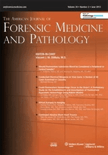
AMERICAN JOURNAL OF FORENSIC MEDICINE AND PATHOLOGY
Pioneering Research in Pathology and ForensicsThe American Journal of Forensic Medicine and Pathology is a pivotal publication within the field of forensic science and pathology, dedicated to disseminating influential research and advancements in the evaluation of death and injury in legal contexts. Published by Lippincott Williams & Wilkins, this journal, which has been in circulation since 1980, serves as a vital resource for professionals, researchers, and students focused on intersecting disciplines such as medicine and forensic investigations. While it holds a respectable Q3 ranking in both the Medicine (Miscellaneous) and Pathology and Forensic Medicine categories as of 2023, the journal's impact is underscored by its contributions to the ongoing dialogue on forensic practices and methodologies. The American Journal of Forensic Medicine and Pathology provides a platform for innovative papers that shape the future of forensic science, also offering insights through case studies, reviews, and research articles that cater to its diverse readership. With an ISSN of 0195-7910 and E-ISSN 1533-404X, the journal continues to support the scholarly community in advancing knowledge within this critical field.

Christian Bioethics
Unpacking Complex Bioethical Issues with Christian InsightsChristian Bioethics is a pivotal journal published by Oxford University Press, dedicated to the interdisciplinary exploration of bioethical issues from a Christian perspective. Since its inception in 1995, the journal has served as a crucial platform for scholars, practitioners, and students to engage with complex ethical questions at the intersection of medicine, philosophy, and religious studies. With an evolving scope that reflects contemporary debates in bioethics, the journal has achieved notable rankings, including Q2 in Religious Studies and Q3 in Philosophy in 2023, underscoring its significance in these fields. While not open access, Christian Bioethics continues to bridge gaps between faith and science, encouraging rigorous dialogue on how Christian ethics can inform bioethical decision-making and policy. It is essential reading for those looking to deepen their understanding of ethical issues shaped by religious convictions, making it an invaluable resource for researchers and professionals alike.

CANCER NURSING
Transforming cancer treatment through dedicated research.Cancer Nursing, a peer-reviewed journal published by Lippincott Williams & Wilkins, plays a pivotal role in the field of oncology nursing, providing a vital platform for the dissemination of research that enhances patient care and nursing practices related to cancer. With an impressive impact factor and categorized within the Q2 quartile for both oncology and nursing disciplines, this journal ranks among the top resources in its field, sitting at Rank #5 out of 20 in Nursing Oncology. Since its inception in 1978, the journal has continuously evolved to address critical issues in cancer treatment, patient education, and healthcare delivery, making it essential reading for researchers, practitioners, and students alike. Although it does not currently offer open access, the journal's commitment to advancing knowledge in oncology nursing is reflected in its rigorous selection process and the quality of its published research. As we look towards its upcoming issues in 2024, the journal remains a cornerstone for those dedicated to improving cancer care and the overall quality of life for patients and their families.
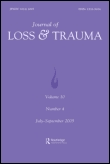
JOURNAL OF LOSS & TRAUMA
Bridging Disciplines to Uncover Trauma's ImpactJOURNAL OF LOSS & TRAUMA, published by Taylor & Francis Inc, is an esteemed interdisciplinary journal dedicated to the impactful study of loss and trauma within the realms of Psychiatry, Mental Health, and Social Psychology. With its inception in 1996 and a commitment to scholarly excellence, this journal serves as a vital resource for researchers and professionals who seek to deepen their understanding of the psychological and social implications of loss and trauma. It is recognized for its high impact, evidenced by its Q1 ranking in various categories, including Social Psychology and Social Sciences. The journal is widely accessible with inherent options to view articles as Open Access, promoting greater dissemination of knowledge. With its commitment to advancing this critical field of study through diverse methodologies and in-depth analyses, the JOURNAL OF LOSS & TRAUMA plays a crucial role in shaping the discourse surrounding healing and recovery, making it an essential read for scholars and practitioners alike.
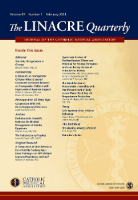
Linacre Quarterly
Illuminating the Philosophy Behind Health DecisionsLinacre Quarterly, published by SAGE Publications Inc, is a distinguished journal that serves as an interdisciplinary platform in the fields of Health Policy and Philosophy. With an ISSN of 0024-3639 and an E-ISSN of 2050-8549, this journal has been pivotal in providing insights into the intricate dynamics of health policy through a philosophical lens since its inception in 1945. Notably, it holds a respectable 2023 Scopus rank, placing it in the 68th percentile within the Arts and Humanities (Philosophy) category and the 21st percentile in Medicine (Health Policy). Though currently not offering Open Access options, Linacre Quarterly remains committed to advancing scholarly discussion and fostering innovation among researchers, professionals, and students alike. Located in the United Kingdom, this journal continues to uphold its reputation as a vital resource for those navigating the complexities of health-related ethical dilemmas and policy-making frameworks, thereby enhancing its visibility and relevance in academic discourse.